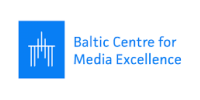Teaching Media Literacy At School As An Interdisciplinary Objective (2024)
Teaching Media Literacy At School As An Interdisciplinary Objective
2024
Andres Kõnno | Senior Researcher, TLU
Külli-Riin Tigasson | Senior Researcher, TLU
…with help and input from others in BECID’s research team, led by BECID’s Principal Investigator, Professor Andra Siibak, UTARTU
Part of D3.1 of the EU-funded project with the ID 118471, coordinated by the University of Tartu (UTARTU).
In the Estonian context, the debate on misinformation’s destructive impact on society started in 2006 and 2007 in connection with the public debate on removing the World War II monument (also known as the “Bronze Soldier Campaign”) from Tallinn. The cyber-attacks on Estonia’s critical infrastructure that followed the monument’s removal were unprecedented locally and globally (Tamm, 2012). The following 15 years will be momentous regarding the spread of global disinformation. Significant events included Russia’s invasion of Georgia (in 2008) and Ukraine (2014), Brexit (2016), as well as Donald Trump’s election campaign (2016). In 2019/2020, we witnessed the spread of misinformation related to the COVID-19 pandemic, followed by the war in Ukraine in February 2022. On the one hand, these events created a need to increase societal resilience to misinformation, inevitably accompanied by a debate on the effectiveness of different measures to help maintain social order.
From a societal point of view, educational policy measures to counter misinformation are long-term and do not have an immediate impact. The debate on these measures occurs both inside and outside the educational field. In the definition of the Estonian Ministry of Education and Research, the teaching of media literacy at school is, above all, a broad-based task:
The need to teach media literacy at school in an interdisciplinary way has been discussed in Estonia since at least the 2011 revision of the national curriculum for primary schools (Official Journal, 2011). Various reports on this topic have been published since then, and there is an ongoing corresponding committee at the Ministry of Education and Research (see Ministry of Education and Research 2023b, 2023c). In this part of the report, we focus on how the ‘interdisciplinary’ approach to media literacy in science literature has been reflected in the last decade (2013-2023), focusing on its teaching in general education schools. Above all, we are interested in what concepts are used to define interdisciplinary media literacy and to what extent there is overlap. This works as a complimentary supplement to the work done by national authorities but should also be of interest to current and future educators.
Read the report: D3.1 (4) Teaching Media Literacy At School As An Interdisciplinary Objective





